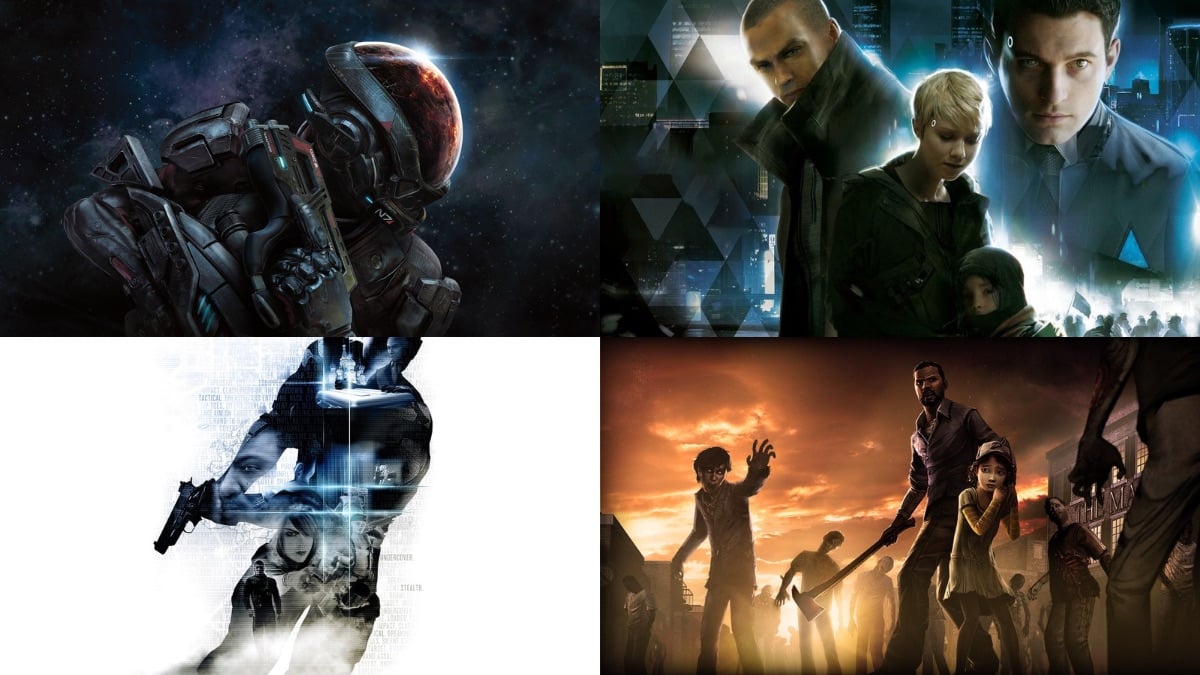
Modern video games transcend their role as mere amusement. They offer platforms for users to craft narratives, foster connections, and grapple with complex ethical dilemmas that linger long after the game is turned off. The ability to choose in gaming gives us a sense of immersion, ensuring each choice we make holds significance.
Some games are remarkable for taking the concept of player influence to new heights, establishing narratives where your actions have profound effects, rippling through the plot or even shaping the game’s fundamental aspects. These titles present players with tough ethical dilemmas and choices that can reshape galaxies, thereby redefining what it signifies to have control in a game. Below, I delve into ten games that placed choice at the heart of their play experience.
The Walking Dead (2012)
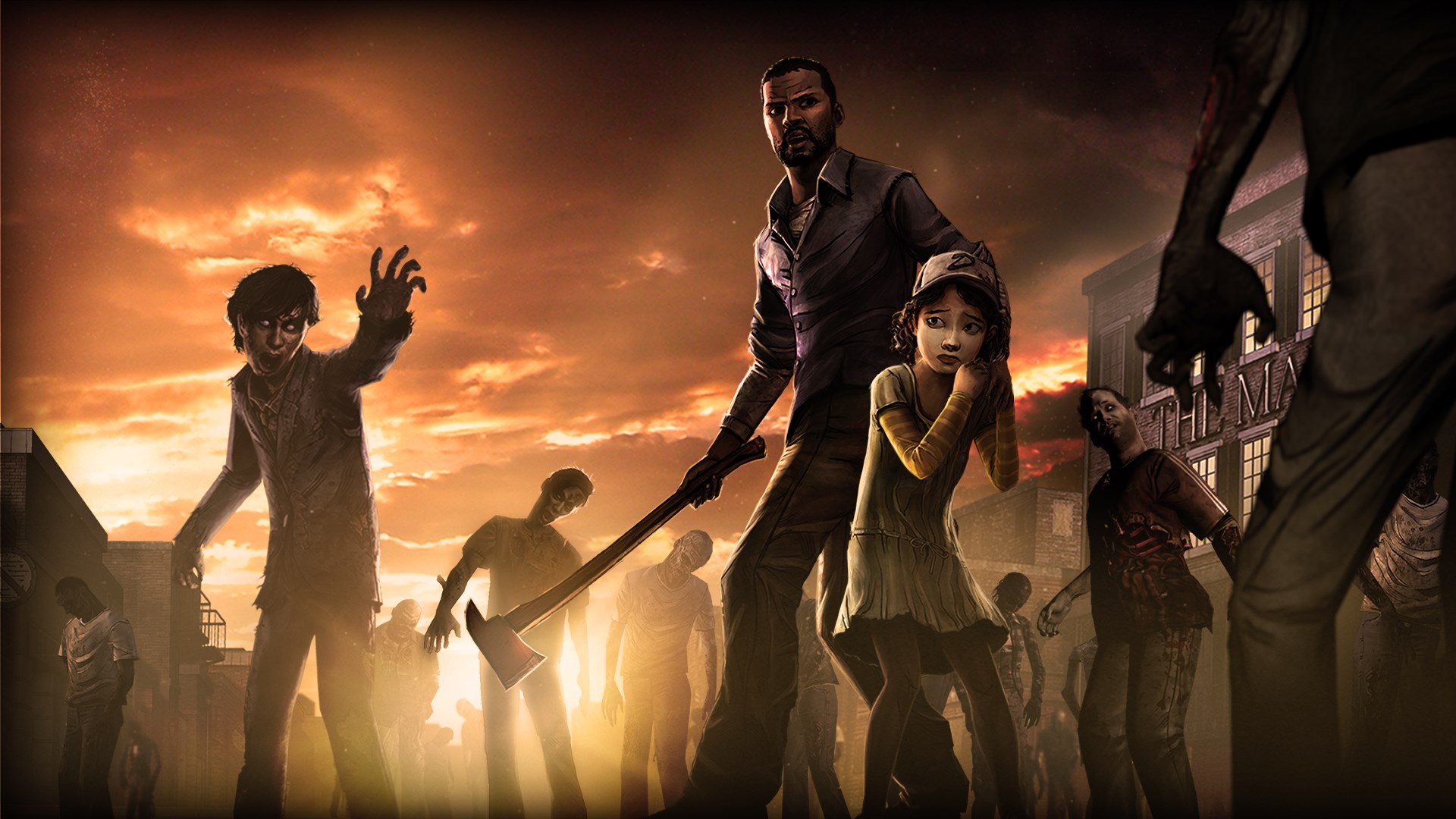
I find myself plunged headfirst into the heart-wrenching chaos of a zombie apocalypse, assuming the role of Lee Everett, a man with a mysterious past. By my side is Clementine, a young girl who’s become more than just a charge – she’s a beacon of hope in this dark world. Each decision I make – whether it means saving another soul or choosing allegiances in a heated conflict – has a profound impact on the narrative and ultimately decides who lives or dies. Telltale Games’ ‘The Walking Dead’ is more than just a game; it’s a testament to the power of choice and survival in the face of adversity.
Your actions in the game not only impact the storyline but also influence the perception of your character by other characters, particularly Clementine. The game requires you to make quick decisions under tense situations, often without clear solutions. Its deep emotional content and focus on relationships set a high standard for interactive narrative storytelling.
Mass Effect Trilogy (2007-2012)

In simple terms, ‘The Mass Effect Trilogy’ is a series of three remarkable science fiction video games that chronicle the journey of Commander Shepard. Throughout these games, you make crucial decisions such as saving lives or forming partnerships, which impact not only the galaxy’s future but also the enduring legacy of Commander Shepard.
What sets it apart is its moral ambiguity. You frequently find yourself in situations where you must decide between less-than-ideal options, and these choices often linger with you. The trilogy’s far-reaching effects, such as the survival or extinction of entire species, raise the bar for long-term player influence.
Until Dawn (2015)

As a thrilled gamer, I’ve found myself entangled in the chilling ‘Until Dawn’. This isn’t just any ordinary game; it’s set on a desolate snowy mountain where eight friends find themselves stranded. What sets this apart is its intriguing Butterfly Effect system. Every decision, be it a small gesture or a life-altering choice, matters significantly. By the game’s end, every single one of these characters could meet their fate, all depending on my choices throughout the game.
This game emphasizes the suspenseful atmosphere reminiscent of slasher movies, allowing you to guide characters through nerve-wracking situations. A wrong move could spell disaster for someone, turning each choice into a risky endeavor. It effectively demonstrates that seemingly insignificant decisions can have profound consequences.
Heavy Rain (2010)

‘Heavy Rain’ is a gripping cinematic mystery involving four individuals connected to a child’s abduction. The decisions you make in critical moments or dialogues can significantly impact the plot, occasionally resulting in a character’s demise or an entirely altered conclusion.
The game’s power lies in its heavy emotional impact. It’s not merely about choosing dialogues; you’re faced with choices about whom to trust or even who to potentially let down. Its daring blend of interactive storytelling and significant repercussions set it apart as a trailblazer in narrative-focused video games.
Life Is Strange (2015)
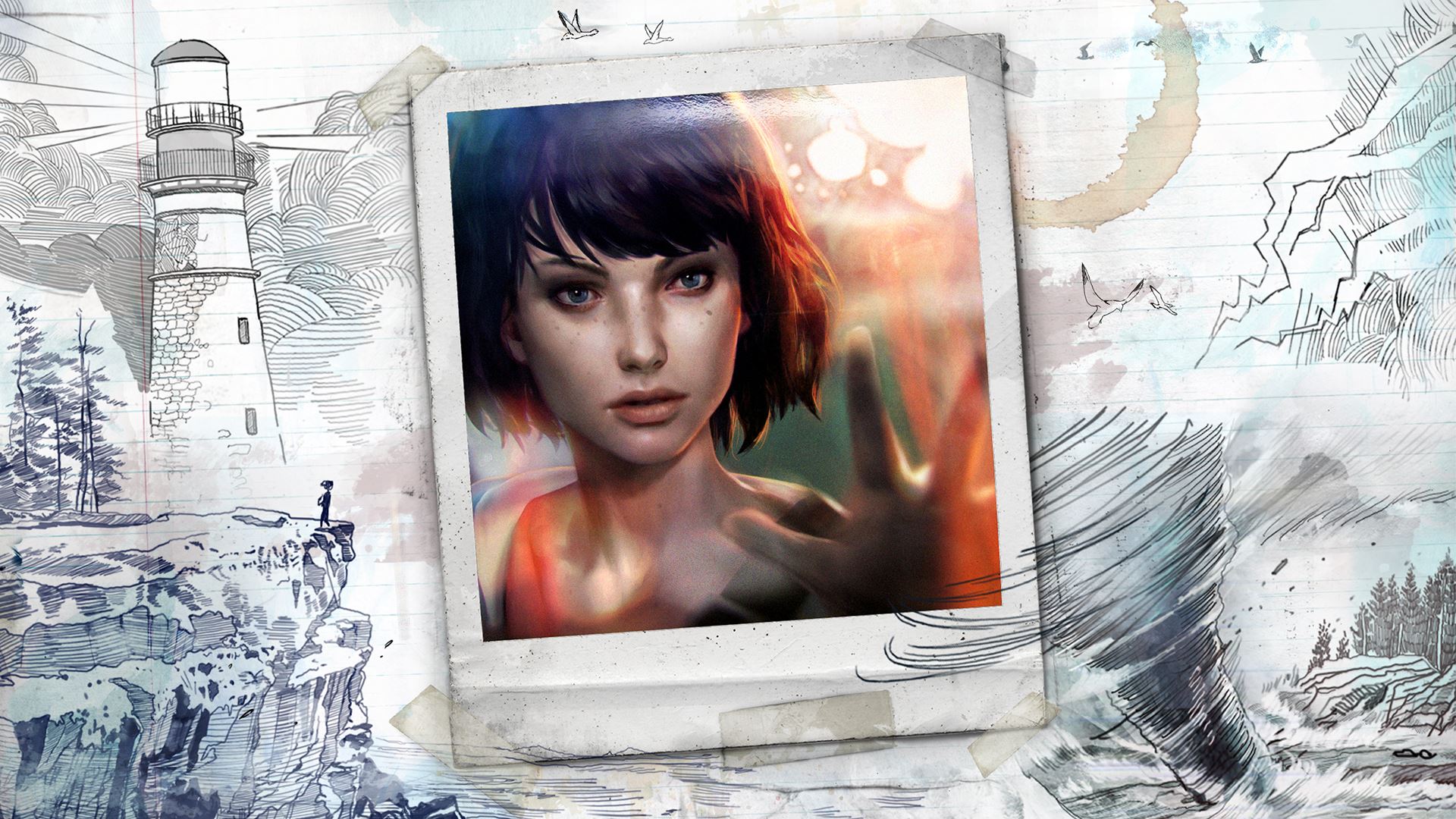
In ‘Life Is Strange’, you assume the role of Max Caulfield, a young girl endowed with the ability to manipulate time. The narrative unfolds in a quaint town, where it revolves around friendships, complex dilemmas, and decisions that significantly impact your relationships and ultimately determine the game’s conclusion.
The ability to rewind time allows you to explore various options, yet the effects of your actions cannot be permanently avoided. The game delves into weighty topics such as grief and self-discovery, ensuring that your decisions carry a profound and lasting impact.
Dishonored (2012)
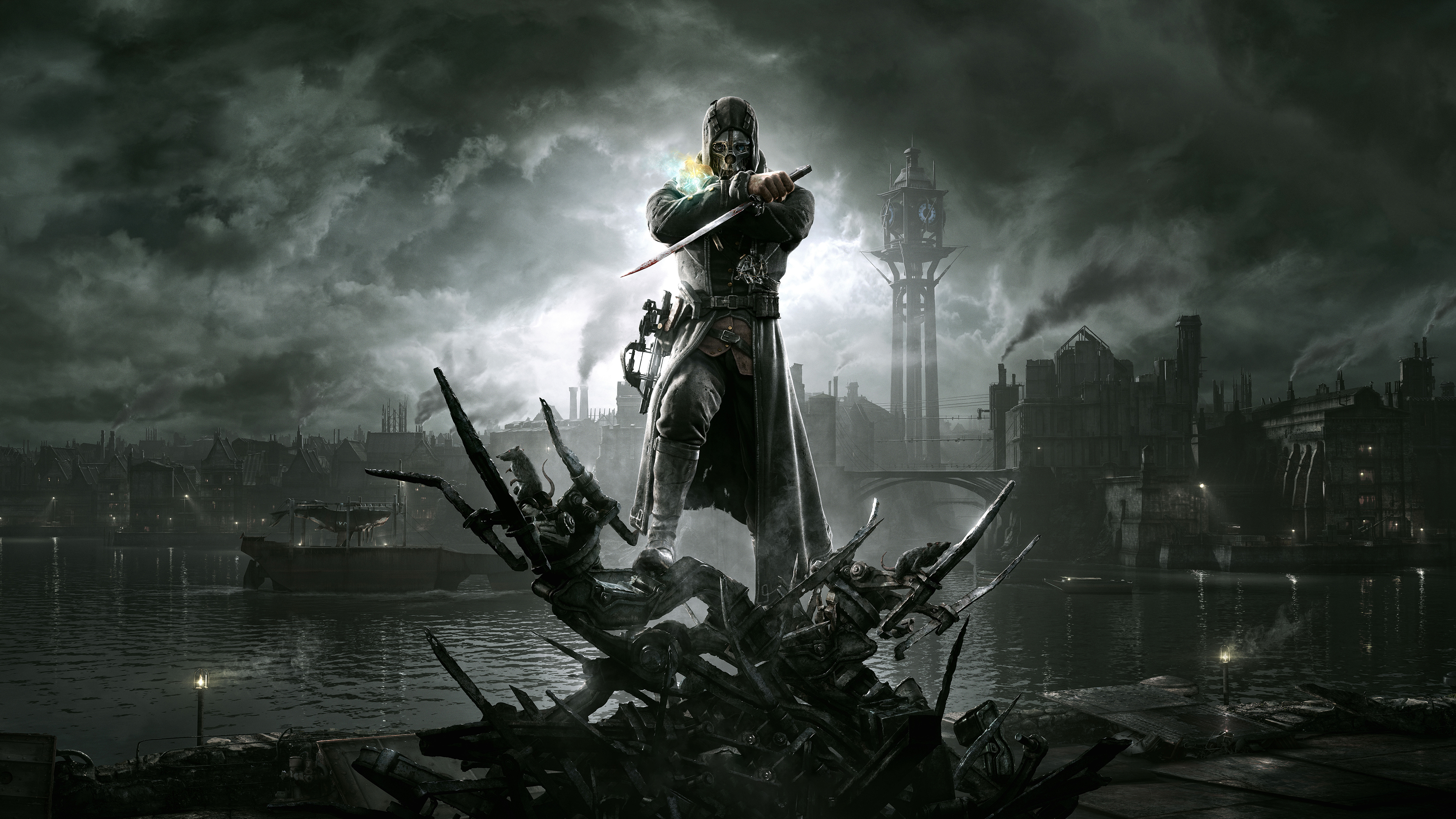
The game ‘Dishonored’ offers a unique experience, placing you in the role of Corvo, a skilled assassin navigating a gritty, steampunk-style environment. Your decisions, whether to eliminate or spare your adversaries, significantly impact the city, with a more chaotic outcome when you favor violence.
The game doesn’t merely evaluate your actions; instead, it modifies the surroundings based on them, ranging from hordes of rats to revised objectives. This flexible design demonstrates that player decisions can significantly influence not only the plot but also the overall game setting.
Silent Hill: Shattered Memories (2009)

‘In the game ‘Silent Hill: Shattered Memories’, the chilling blend of survival horror and intriguing psychological elements is showcased. The way you respond to a therapist’s questions in the therapy sessions has a subtle impact on the game environment, transforming aspects such as enemy designs and character interactions.’
This subtle impact gives each decision a chilling, individualized feeling. The game doesn’t explain how your responses affect outcomes, contributing to its eerie ambiance. It demonstrated that seemingly minor decisions can drastically alter a game’s mood.
Detroit: Become Human (2018)
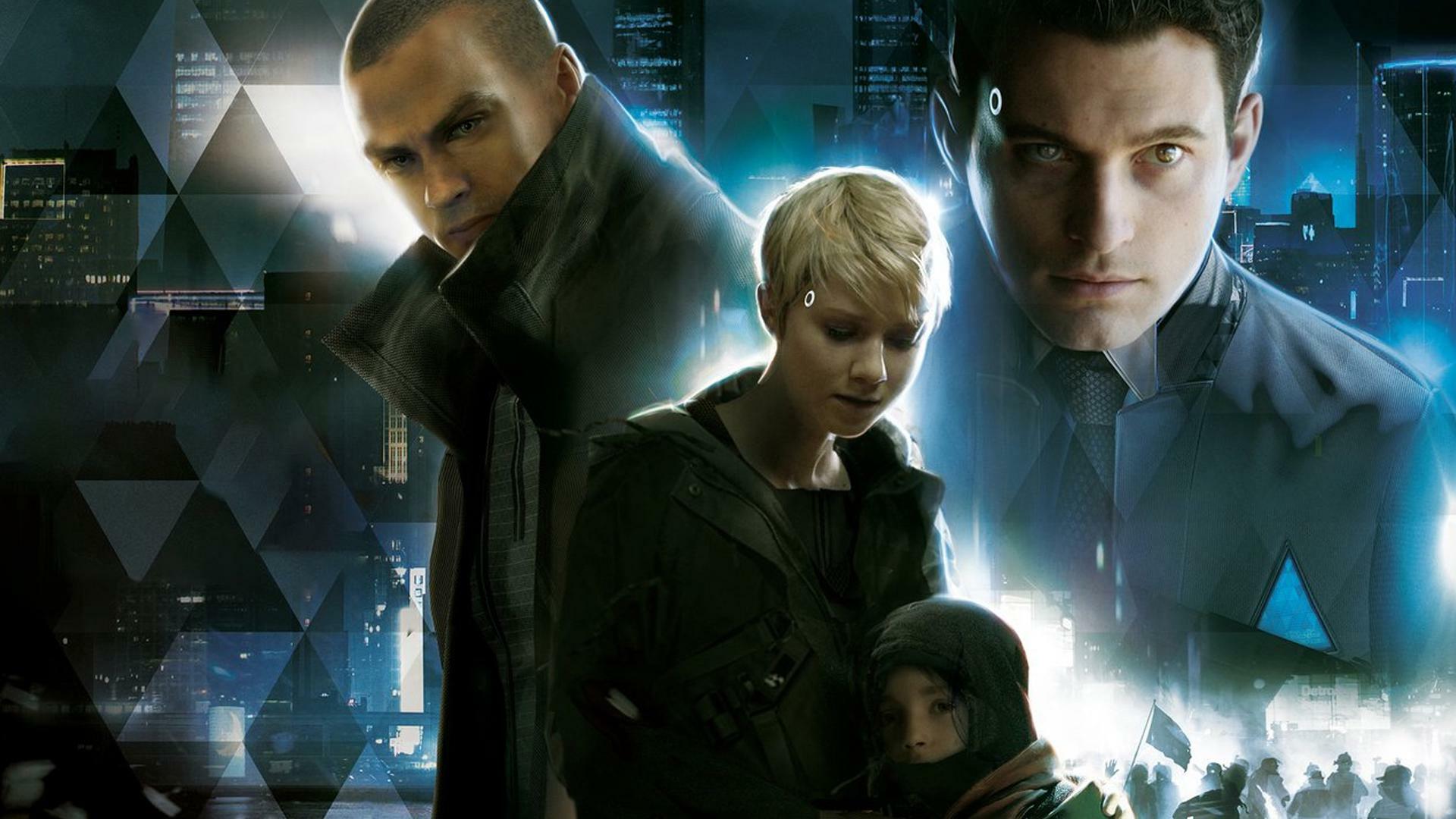
In the game ‘Detroit: Become Human’, you find yourself in a future metropolis, guiding three robots through the turmoil of a human-robot uprising. The choices you make, whether significant or minor, have profound effects on the narrative’s direction, with entire segments of the story changing depending on your actions.
The game’s flow diagram illustrates all potential outcomes, motivating multiple playthroughs to discover alternative paths. Its emphasis on ethical quandaries, such as choosing between rebellion and obedience, sets it apart in the realm of interactive stories with multiple endings.
Alpha Protocol (2010)

‘Alpha Protocol’ places you in the role of Michael Thorton, a secret agent involved in an international intrigue. The decisions you make regarding dialogue and missions significantly impact relationships, trust, and the overall narrative flow. Since every gameplay experience is unique due to these choices, no two playthroughs are alike.
The game values careful observation, as even a solitary chat can determine the course of multiple story arcs. Its intricate system of repercussions demonstrates that dialogue can hold equal weight to actions when sculpting a game’s universe.
The Witcher 3: Wild Hunt (2015)

‘The game titled ‘The Witcher 3: Wild Hunt’ centers around Geralt of Rivia, a skilled monster hunter, who navigates an expansive fantasy realm. The decisions you make in the quests – whether it’s showing mercy to a villain or selecting a ruler – have far-reaching consequences, impacting entire regions and characters significantly.’
As a dedicated enthusiast, I’d say the captivating essence of this game resides in its moral grayness. It seldom presents a straightforward good or evil, and often, the effects of our decisions don’t manifest until much later. The intricate, responsive world of this game made every choice I made along Geralt’s journey feel pivotal, as if the fate of the characters and the story itself hung in the balance with each decision I made.
Read More
- 2025 Crypto Wallets: Secure, Smart, and Surprisingly Simple!
- TON PREDICTION. TON cryptocurrency
- Bitcoin’s Bizarre Ballet: Hyper’s $20M Gamble & Why Your Grandma Will Buy BTC (Spoiler: She Won’t)
- The 10 Most Beautiful Women in the World for 2026, According to the Golden Ratio
- Gold Rate Forecast
- Nikki Glaser Explains Why She Cut ICE, Trump, and Brad Pitt Jokes From the Golden Globes
- TSMC & ASML: A Most Promising Turn of Events
- Six Stocks I’m Quietly Obsessing Over
- Enduring Yields: A Portfolio’s Quiet Strength
- Quantum Computing: A Long-Term Relationship?
2025-07-04 21:18